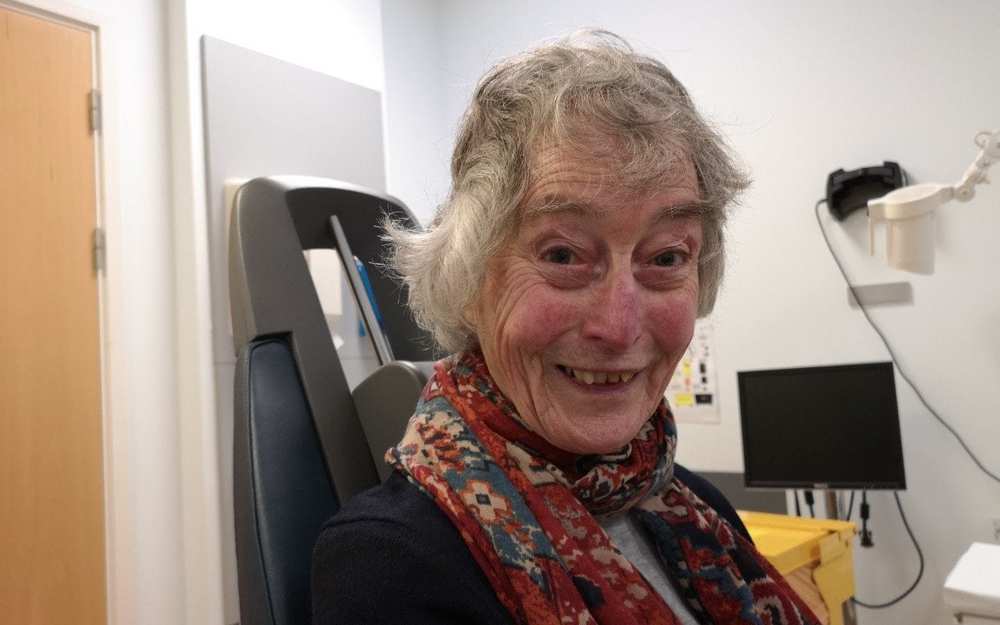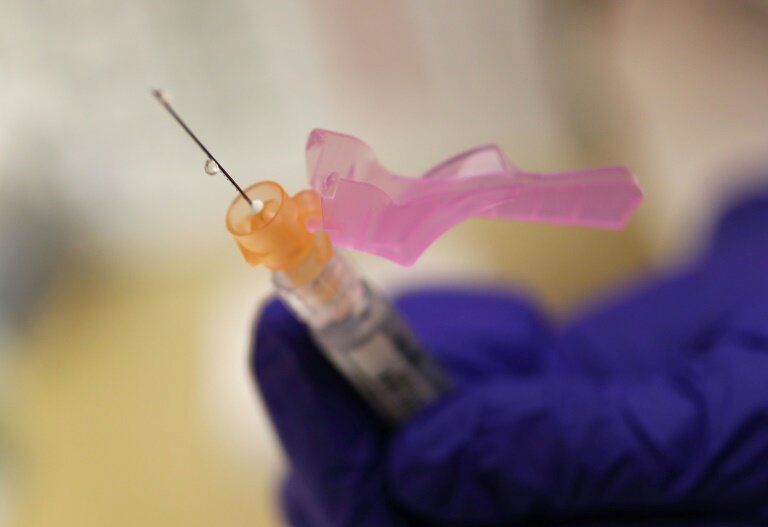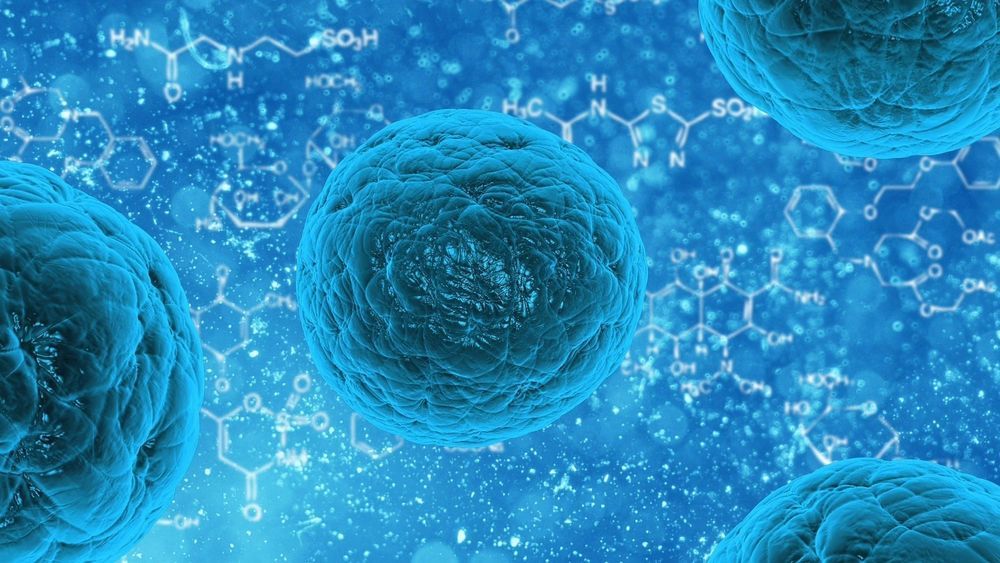Page 8156
Feb 18, 2019
British woman is first in the world to undergo gene therapy for most common form of blindness
Posted by Genevieve Klien in categories: biotech/medical, life extension
A British woman has become the first person in the world to undergo gene therapy for the most common cause of sight loss.
Surgeons at the John Radcliffe Hospital in Oxford inserted a synthetic gene into the left eye of Janet Osborne, 80, who suffers from age-related macular degeneration (AMD).
Around 600,000 people in the UK are affected by AMD, which affects the central part of a patient’s vision with gaps or ‘smudges’, making everyday activities like reading and recognising faces difficult.
Feb 18, 2019
How quantum dots supercharge farming, medicine and solar, too
Posted by Quinn Sena in categories: biotech/medical, food, quantum physics

Circa 2018
From medical to agricultural to solar, quantum dots have uses far beyond the humble TV.
Continue reading “How quantum dots supercharge farming, medicine and solar, too” »
Feb 18, 2019
Here’s a Simple Thing We Can Do to Cancel Out Years of CO2 Emissions
Posted by Quinn Sena in categories: climatology, space, sustainability
An ambitious new analysis of the world’s forests found that there’s space to plant 1.2 trillion new trees — a number that would absorb more carbon than human emissions.
According to the new data, ETH Zurich researcher Thomas Crowther told The Independent, trees are “our most powerful weapon in the fight against climate change.”
Crowther told The Independent that the new analysis, which he presented at a conference this weekend, suggests that a worldwide tree-planting spree would have a greater impact on the planet’s environment than building wind turbines or vegetarian diets — an effort, he says, that could cancel a decade of greenhouse emissions.
Continue reading “Here’s a Simple Thing We Can Do to Cancel Out Years of CO2 Emissions” »
Feb 18, 2019
A call for a theoretical framework to address replication crisis facing the psychological sciences
Posted by Quinn Sena in category: economics
A pair of researchers from the London School of Economics and Political Science and Harvard University has published a Perspective piece in the journal Nature Human Behavior suggesting a possible solution to the replication crisis facing the psychological sciences. Michael Muthukrishna and Joseph Henrich believe the answer lies in convincing researchers to start working within a theoretical framework.
Most experts would agree that human psychology is a difficult problem. Why do people do the things they do? Why do groups behave one way or another? No one really knows the answers to such questions, though psychology and sociology researchers have been carrying out experiments for many years. In more recent times, such research has questioned because so few studies have been replicated by others. Even when research teams attempt to do so, they produce different results. This has resulted in what has come to be known as a replication crisis. In their paper, Muthukrishna and Henrich suggest solving the crisis requires researchers in the field to begin conducting experiments the way they are done with other sciences—by using a theoretical framework, or even multiple frameworks. They note that doing so would reduce the number of questions that can be asked regarding a given behavior—without such a framework, they add, there is no limit.
Feb 18, 2019
Discovering a New Form of Communication in the Brain
Posted by Paul Battista in categories: biotech/medical, engineering, neuroscience
Summary: Researchers have identified a previously unknown form of neural communication. They report the findings could help better the understanding of neural activity associated with specific brain processing and neurological disorders.
Source: Case Western Reserve University.
Biomedical engineering researchers at Case Western Reserve University say they have identified a previously unidentified form of neural communication, a discovery that could help scientists better understand neural activity surrounding specific brain processes and brain disorders.
Feb 18, 2019
Liz Parrish : Gene therapy advancements | BioViva | People Unlimited
Posted by Montie Adkins in categories: biotech/medical, education, life extension

Liz talking about Rutgers, Integrated Health Systems, anti-aging vaccine(couple of years of gathering data), $75,000 single organ treatment, and potential for very affordable whole body treatment. Q&A at 32 minutes.
Liz Parrish | BioViva, presents at People Unlimited’s Ageless Education, about Gene Therapy Advancements.
Continue reading “Liz Parrish : Gene therapy advancements | BioViva | People Unlimited” »
Feb 18, 2019
Watch a Harpoon Attached to a Satellite Spear a Piece of Space Debris
Posted by Quinn Sena in category: space

The test is actually the RemoveDEBRIS satellite’s second trick: in September, it successfully deployed a spider-like web that was meant to grab space junk out of the sky.
The team at the University of Surrey is now preparing for its third and final test: RemoveDEBRIS will inflate a sail that will slowly drag it into Earth’s atmosphere where it will burn up and be destroyed.
Continue reading “Watch a Harpoon Attached to a Satellite Spear a Piece of Space Debris” »
Feb 18, 2019
‘Killer’ cells raise hope of universal flu vaccine
Posted by Quinn Sena in categories: biotech/medical, innovation
Scientists said Monday they had discovered immune cells that can fight all known flu viruses in what was hailed as an “extraordinary breakthrough” that could lead to a universal, one-shot vaccine against the killer disease.
Influenza epidemics, largely seasonal, kill hundreds of thousands of people each year, according to the World Health Organization.
Due to its mutating strains, vaccine formulas must be regularly updated and only offer limited protection currently.
Continue reading “‘Killer’ cells raise hope of universal flu vaccine” »
Feb 18, 2019
CRISPR gene editing makes stem cells ‘invisible’ to immune system
Posted by Quinn Sena in categories: bioengineering, biotech/medical, genetics, life extension
UC San Francisco scientists have used the CRISPR-Cas9 gene-editing system to create the first pluripotent stem cells that are functionally “invisible” to the immune system, a feat of biological engineering that, in laboratory studies, prevented rejection of stem cell transplants. Because these “universal” stem cells can be manufactured more efficiently than stem cells tailor-made for each patient—the individualized approach that dominated earlier efforts—they bring the promise of regenerative medicine a step closer to reality.
“Scientists often tout the therapeutic potential of pluripotent stem cells, which can mature into any adult tissue, but the immune system has been a major impediment to safe and effective stem cell therapies,” said Tobias Deuse, MD, the Julien I.E. Hoffman, MD, Endowed Chair in Cardiac Surgery at UCSF and lead author of the new study, published Feb. 18 in the journal Nature Biotechnology.
The immune system is unforgiving. It’s programmed to eradicate anything it perceives as alien, which protects the body against infectious agents and other invaders that could wreak havoc if given free rein. But this also means that transplanted organs, tissues or cells are seen as a potentially dangerous foreign incursion, which invariably provokes a vigorous immune response leading to transplant rejection. When this occurs, donor and recipient are said to be—in medical parlance—” histocompatibility mismatched.”
Continue reading “CRISPR gene editing makes stem cells ‘invisible’ to immune system” »















